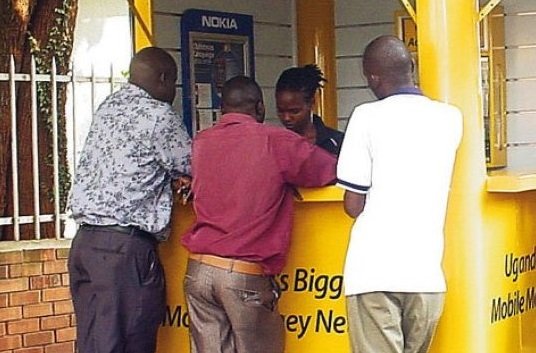Editorial
E-levy must achieve its purpose

Dear Editor,
After the hue and cry, the Electronic Transaction Levy (E-levy) has been implemented and it may stay with us for a long time. I doubt the suit by the Minority in Parliament at the Supreme Court would even change anything.
When it took effect on May, 1, 2022, many of us started feeling the deductions being made on our mobile transactions and we cannot even smile about it.
The Ghana Revenue Authority had said it would take a closer look at the system, following complaints of ‘inconsistency’ in the rates charged per transaction by some members of the public. I look forward to reading their findings.
My concern, however, is whether the country has, indeed, moved from a ‘taxation economy’ to a production/manufacturing economy’ as promised by our political leaders. From all indications, we are far from reaching that target as the government seems to continue identifying ‘taxable avenues’ in order to rake in revenue.
I believe leaders are elected to improve the lives of citizens not make it worse, but that does not seem to be the case in our country. The financial burden on citizens continues to increase each day with no corresponding increase in income. The less we talk about unemployment, the better.
All the same, we have been told that proceeds from E-levy would help address our economic challenges. A lot of people have high expectations and I need not say more. Citizens, including myself, are hoping that whatever income would accrue from the levy must be channelled appropriately for the benefit of all.
Bless Fianko,
Teshie – Agblezaa.
Editorial
Would there ever be beds?
Dear Editor,
I WRITE to condemn the circumstances under which an accident victim died recently after three major hospitals reportedly turned him away due to what has earned a place in our local parlance as ‘no bed syndrome.’
Reports suggested that this motor rider who got knocked by a vehicle was taken to three major hospitals – Police Hospital, Greater Accra Regional Hospital (Ridge Hospital), and the Korle-bu Teaching Hospital – but they all claimed they had no beds.
But one may ask, would there ever be beds?
Such is the treatment Ghanaians endure every now and then when one visits our hospitals, especially the public ones which are run with the taxpayers’ money. Many a time when one visits the hospitals, the sight of patients admitted and lying on benches, and some sitting on chairs while receiving care, is visible to all; making one wonder why this particular motor rider was not admitted at any of the facilities, looking at his condition.
This leads to the reason for this letter, which is to bring out a perceived apathy against these motor riders, the majority of whom are referred to as ‘Okada’ riders.
Due to their recklessness on the roads and the inconvenience caused to commuters, people always speak ill about them; drivers equally have no regard for them. Every user of public transport would attest to this. These riders are blamed for every offence, even when it is obvious drivers may be at fault sometimes.
Motor riders have become like orphans on the road; people care less about them, and when they are unfortunately knocked down, no one cares about them.
This is the mischief our authorities and agencies, including the police, must seek to cure to make the road safe for all users.
These are young folks that want to make a living for themselves, and with no skill or education, ‘Okada’ rides have become their source of livelihood. They need the protection accorded drivers and commuters as well.
In other countries, some facilities have been provided to make their work safer, but in Ghana, we lack them, leaving them with no alternative than to share the available space with the cars.
What has happened should serve as a wake-up call on our authorities to aim to take a second look at the ‘Okada’ menace. With the numbers increasing, there should be a way to regulate them because no government would have the guts to ban it totally.
Drivers should be made to accept the reality that they are sharing the roads with them, and therefore the need for patience and tolerance.
For some of our hospitals, I suggest the Ministry of Health conduct their own investigations to see what patients go through in accessing medicare, which is even not for free.
Thank you, Editor, for the space.
F. Morgan, Kokrobite
Editorial
Ending the ‘No Bed’ syndrome
Dear Editor,
THE heartbreaking death of 29-year-old engineer Charles Amissah in a hit-and-run accident has exposed once again the failures in our health system.
Even more painful is the fact that his father had previously donated beds to some hospitals, yet when his son needed urgent care, he was moved from one facility to another because there were ‘no beds.’
This is not only tragic but unacceptable. How can a country lose its bright young citizens simply because hospitals cannot provide emergency treatment? The ‘no bed syndrome’ has become a national disgrace, and Charles’ death is a reminder that reforms cannot wait.
Our hospitals must be equipped to handle emergencies, and accountability must be enforced. If donations are made to improve facilities, then those facilities must serve the people when it matters most. Ghana cannot afford to keep losing lives to negligence and poor infrastructure.
Charles Amissah’s death should be the turning point. Let us honor his memory by fixing the system so that no family would suffer this kind of preventable loss again.
Princess Wonovi
Accra
Join our WhatsApp Channel now!
https://whatsapp.com/channel/0029VbBElzjInlqHhl1aTU27







